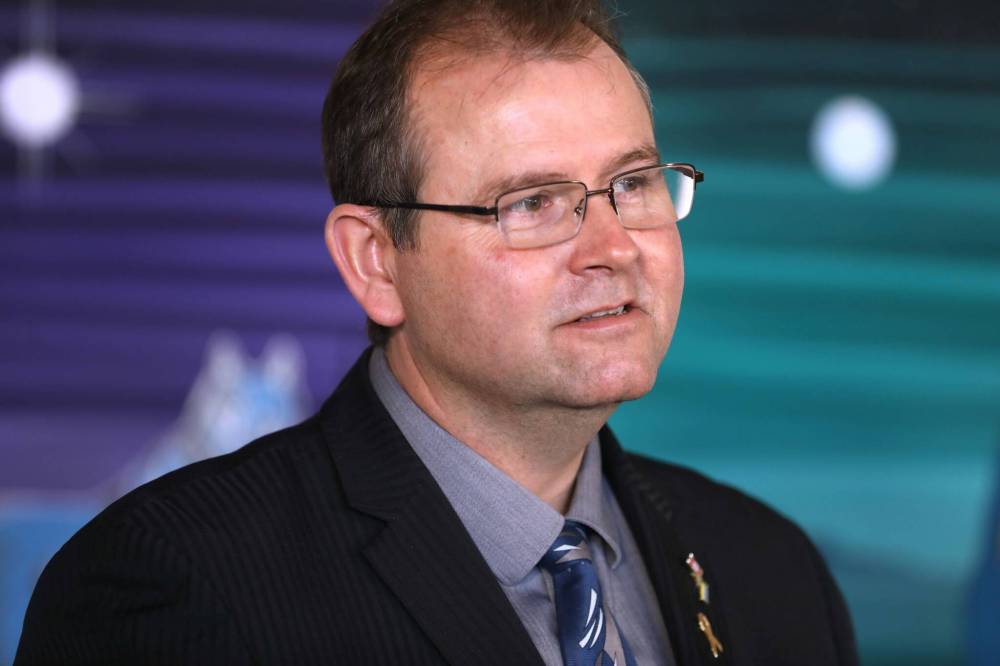A co-ordinated evasion of accountability
Advertisement
Read this article for free:
or
Already have an account? Log in here »
To continue reading, please subscribe:
Monthly Digital Subscription
$0 for the first 4 weeks*
- Enjoy unlimited reading on winnipegfreepress.com
- Read the E-Edition, our digital replica newspaper
- Access News Break, our award-winning app
- Play interactive puzzles
*No charge for 4 weeks then price increases to the regular rate of $19.00 plus GST every four weeks. Offer available to new and qualified returning subscribers only. Cancel any time.
Monthly Digital Subscription
$4.75/week*
- Enjoy unlimited reading on winnipegfreepress.com
- Read the E-Edition, our digital replica newspaper
- Access News Break, our award-winning app
- Play interactive puzzles
*Billed as $19 plus GST every four weeks. Cancel any time.
To continue reading, please subscribe:
Add Free Press access to your Brandon Sun subscription for only an additional
$1 for the first 4 weeks*
*Your next subscription payment will increase by $1.00 and you will be charged $16.99 plus GST for four weeks. After four weeks, your payment will increase to $23.99 plus GST every four weeks.
Read unlimited articles for free today:
or
Already have an account? Log in here »
Hey there, time traveller!
This article was published 03/10/2022 (1165 days ago), so information in it may no longer be current.
Brent Richard Garraway, a high school teacher in Victoria, became physically intimate with a Grade 12 student who played on a soccer team coached by Garraway. The student stayed overnight at the coach’s apartment and, after the student graduated, they began a sexual relationship.
In an agreement signed Aug. 31, Garraway admitted the abuse and agreed to a lifetime ban from teaching in B.C.
His name, details of his offence and the discipline against him are outlined in a B.C. government website in a special section that is updated regularly by the B.C. Commissioner for Teacher Regulation.

RUTH BONNEVILLE / WINNIPEG FREE PRESS FILES
Minister of Education and Early Childhood Learning Wayne Ewasko
RUTH BONNEVILLE / WINNIPEG FREE PRESS LOCAL - Indigenous education Education and Early Childhood Learning Minister Wayne Ewasko announces funding for Indigenous Inclusion Directorate at Niji Mahkwa School Tuesday. Story - Mamhtawisiwin: An Indigenous Education Policy Framework, and the Elders and Knowledge Keepers in Schools Initiative April 28th, 2022
In Manitoba, by contrast, had a teacher engaged in similar relationship with a student, the teacher’s actions and ensuing discipline would likely not have been publicly reported unless the teacher faced criminal charges in an open court. Unlike several other provinces, Manitoba doesn’t have an effective system for warning the public about teachers who act badly.
Rather, Manitoba has school divisions that appear to have united in a co-ordinated evasion of accountability.
The Free Press filed freedom-of-information requests with the province’s 37 school divisions, asking for non-identifying information about cases of misconduct at each division over the past five years, including the number of teachers investigated for misconduct, and the nature and outcome of allegations.
Two divisions confirmed they had no recorded cases of misconduct. All others rejected the request. It’s concerning the school divisions refused to provide information that is easily available in other provinces, but it’s also concerning how most of them refused the requests: they answered with essentially the same letter.
Like school children cribbing from the same online source, the division officials shared reasons for non-disclosure with wording such as “an unreasonable invasion of a third party’s privacy,” “advice to a public body” and “private workplace investigations.”
The phraseological evidence that most of the responses had the same origin raised the question of whether the requests to the school divisions were relayed to, and answered by, the provincial government, which would amount to alarming political interference in the freedom-of-information process.
Education Minister Wayne Ewasko said no, the province was not consulted on the access requests sent to school divisions.
The mystery remains about who pulled the strings to lower a shroud of secrecy over teacher misconduct, but of greater significance is whether Manitoba children might be in a classroom with a teacher with a history of inappropriate behaviour.
Of the 31 teachers disciplined at the provincial level over the last five-and-a-half years, about half were related to criminal matters such as sexual assault, luring, exploitation and possession of child pornography. The five Manitoba teachers charged with sex-related offences since 2021 include Kelsey McKay, a Winnipeg high school football coach facing 24 charges involving nine former football players.
A K-12 review commission in 2020 recommended creating a regulatory college for teachers that would publish disciplinary actions, as is done in nursing and law. Although the Manitoba Teachers’ Society has said it opposes making teacher discipline public, Mr. Ewasko said consultations on the commission’s recommendation will continue this year.
Noni Classen, director of education with the Canadian Centre for Child Protection in Winnipeg, said teacher wrongdoings need to be reframed as “child-safety” issues, not “workplace investigations.”
“Parents have a right to know if there is information that could warrant a concern with their child being in a classroom with somebody who has been found guilty of sexual misconduct,” she said.
Ontario, Saskatchewan, Alberta and B.C. get it. They all have processes in which disciplinary steps and teachers’ names are publicized. Manitoba’s children deserve similar protection.
History
Updated on Monday, October 3, 2022 7:29 AM CDT: Adds photo


